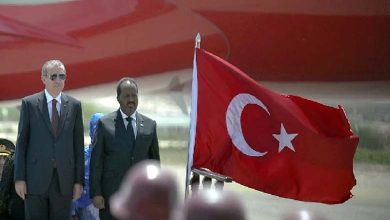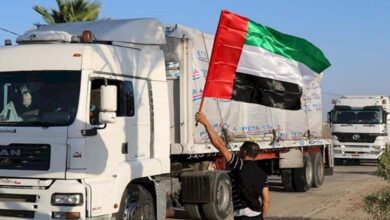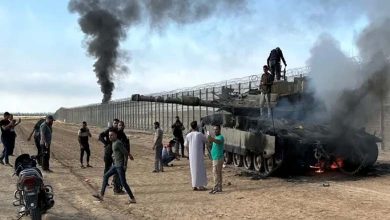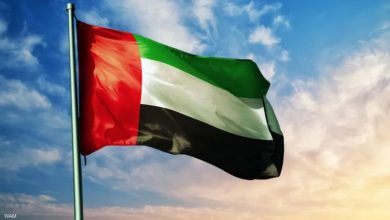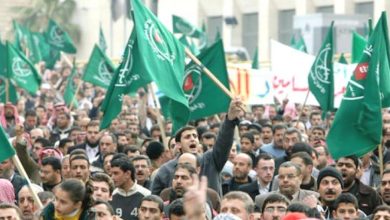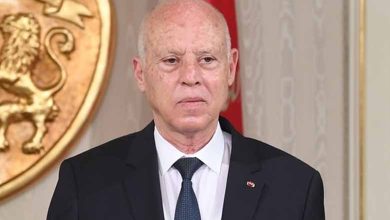Seizure of Houthi arms shipment reveals Iran’s intentions to escalate
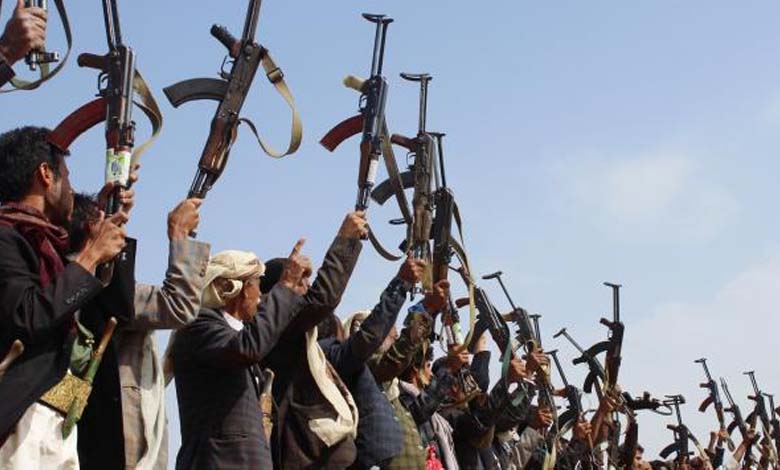
Iran has continued to threaten the region’s security by smuggling weapons to its Houthi allies in Yemen to target oil tankers in the Red Sea and Bab al-Mandab in a bid to make its plot to disrupt global oil supplies succeed. The US Navy’s Fifth Fleet said on Saturday that it intercepted a fishing vessel smuggling “more than 50 tons of ammunition rounds, valves and fuel for missiles” in the Gulf of Oman in a sea corridor from Iran to Yemen on December 1st.
“Members of the Navy, operating out of Marine Expeditionary Force lewis b. puller (EUSP-3), discovered the illegal shipment during flag verification, marking the second largest seizure of illegal weapons by the U.S. Navy Fifth Fleet within a month,” it said in a statement.
It is not the first time that international powers have thwarted attempts to smuggle arms from Iran to the rebels, threatening regional and international security. Last month, the US Fifth Fleet seized an arms shipment on a cargo ship heading to Yemen before it was sunk.
The Houthis have recently stepped up threats to target maritime shipping in the Red Sea, vowing to move from warning strikes on oil vessels in ports under the legitimate government’s control to direct attacks, testing antishipping missiles and launching attacks in private home fronts in Marib.
A series of attacks by rebels in Yemen on oil ports two months after the expiration of a truce that they refused to extend signaled a new phase of military escalation with potentially devastating economic and humanitarian consequences.
Iranian-backed militia leaders have recently threatened to take the battle and expand it by sea, unless oil revenues are transferred to the central bank in Sanaa and they insist they will attack Arab coalition forces in regional waters.
“The Houthis have resorted to drone attacks by blocking oil tankers from docking at government-held ports, in an effort to press for power gains as the UN seeks to extend the truce”, analysts said.
The Houthis control large swathes of northern and western Yemen, including the capital Sana’a and the Red Sea port city of Hodeida, from which most commercial goods and humanitarian aid pass.
The port has become a base for the Houthis to obtain smuggled Iranian weapons in support of Tehran’s plan to target international shipping after marches believed to be Iranian attacked an oil tanker belonging to an Israeli businessman in the waters of Oman.
In the face of these threats, Saudi Arabia sought to strengthen its naval fleet by signing a memorandum of understanding with a Spanish company to build advanced combat ships for the Royal Navy.
On the ground, the Houthis have stepped up their military operations in the oil-rich Marib province, where the Yemeni army announced on Friday the killing of a number of its soldiers and Houthi gunmen in “fierce” battles between the two sides in the province.
In the face of Houthi abuses, thousands of Yemenis at a mass rally in Taiz on Saturday called on the presidential council and their government to support the army and harness the resources to fight the rebels.
Thousands of demonstrators gathered on Jamal Street in central Taiz, holding signs that read, “The army and security forces are levers of liberation and statehood,” “Houthi is a project of destruction and revenge against the Yemeni people,” and “The resistance is continuing against everything that threatens Yemen and its republican regime.”
The Popular Resistance Council said in a statement read on the sidelines of the rally that the march “is to emphasize the continuation of the liberation battle (against the Houthis), to demand its support and to use all reasons for its victory”.
The council called on “the presidency and the government to support the national army with all its requirements to fight the liberation battle, especially after the Houthi militia rejected the truce and mobilized its forces against the province.”
Political and popular groups in Taiz say the Yemeni army is short of equipment and capabilities to wage an all-out battle with the Houthis.
The Popular Resistance Council statement also called on “all political and social forces to reject any disagreement and to harness all energies and unify them for the liberation battle.”
The Yemeni parties failed to extend a third truce agreement in the country, which began on April 2 and ended on October 2.
Yemen is in the grip of a war that began after the Houthis took control of the capital Sanaa and several provinces at the end of 2014, with support from forces loyal to former President Ali Abdullah Saleh. Saleh was killed in 2017 in clashes with the group’s gunmen when their alliance ended.
The conflict has escalated since March 2015, when a Saudi-led military coalition, led by Arab states and aided by the legitimate government, took action against the Iranian-backed Houthi group.


